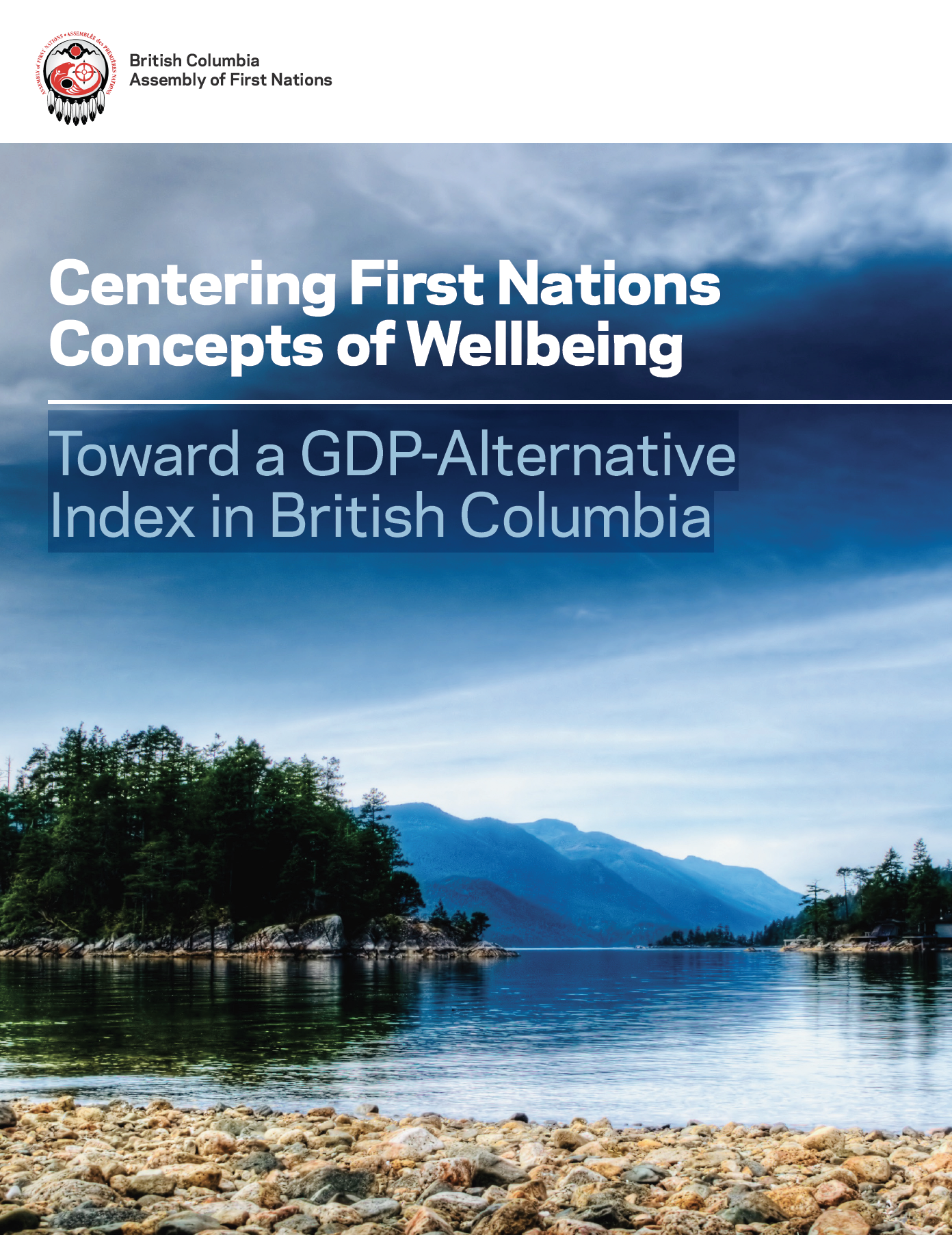Centering First Nations Concepts of Wellbeing: Toward a GDP-Alternative Index in British Columbia
This discussion paper explores the ways in which our official BC measures of economic value are inadequate and fail to reflect the values of First Nations governments and individuals to the overall wellbeing of the province.
BC, like Canada and most countries around the world, currently measures economic growth using gross domestic product (GDP). GDP is a crude proxy for gauging economic wellbeing in that it essentially measures only national income. However, countries around the world are increasingly adopting new indices of wellbeing that measure economic income, plus a full suite of indicators such as the environment, culture, safety, leisure time, health, and education. These wellbeing indices measures are remarkably similar to those held by BC Indigenous peoples.
Indigenous peoples in BC already have a sophisticated concept of what constitutes a “good life”, a conception and way of living that has been refined over millennia and that varies within each culture, place, and language. An Indigenous good life is one that is “richer” with, for example, clean air, regenerative wild fisheries and forests, socially healthy families, the passing-down of cultural values and language, excellent education, respect for traditions that value Elders and living Indigenous knowledge, a responsive health care system, and a natural environment that sustains our collective wellbeing and species.
Given the global trend in GDP-alternative measures, and considering the need for a productive and efficient COVID-19 recovery, there is an opportunity for BC to develop its own made-in-BC wellbeing index that considers Indigenous knowledge of environmental, health, education, community and cultural outcomes in order to improve the livelihoods of all British Columbians. Read/download the documents:
Centering First Nations Concepts of Wellbeing: Toward a GDP-Alternative Index in British Columbia

Free Prior and Informed Consent in Business
The British Columbia Assembly of First Nations (BCAFN) is pleased to develop a series of policy papers in support of Indigenous economic development in British Columbia. This paper focuses on the components of the UN Declaration on the Rights of Indigenous People (the Declaration), the associated concept of free, prior and informed consent (FPIC), and application to economic development for Indigenous communities.
The BCAFN’s Regional Chief Terry Teegee, as the Chair of the AFN Chiefs Committee on Economic Development, has been implementing a Sustainable Economic Development and Fiscal Strategy that provides tools and advocacy for the inescapable economic component of Aboriginal title. In addition to the series of policy papers, an example of other tools within the strategy includes the release of the Blackbooks – a toolkit for First Nations economic development.
This paper aims to provide Chiefs, leadership and community members with a foundation to support their understanding of recent developments in law, policy and practice and empower them to leverage these understandings to create meaningful and prosperous business partnerships in their communities that align with their values, now and for seven generations. It is the codification of Indigenous consent as a business norm that will ensure economic and legal certainty as a legacy of our time, and BC AFN is proud to support leadership and community in achieving their potential through the development of such tools. Read/download the full document:
Free Prior and Informed Consent in Business PDF

